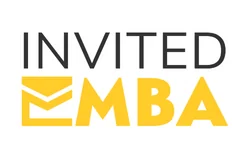
As mini-MBA programs become more popular and available, it is important to be intentional in choosing the right program for you. Do you want a local program or a global, virtual one? How about a program that allows you to learn at your own pace or a program that offers a consistent schedule? What level of time and financial investment is right for you?
There is no universal answer to these questions – they are unique to you. It’s important to reflect on your goals and what you need to succeed before making a commitment to a business program.
Here are five mini-MBA must-haves to consider as you think about your next steps in business:
- Do you want to go at your own pace or have the structure of a cohort-based program?
Most mini-MBA programs or business courses fall into one of two categories: asynchronous or synchronous programs. This means they are either programs that you can complete on your own time, likely with minimal contact with professors and other students, or programs to complete with a cohort of other students at specific times.
You might be drawn to a program that you can complete at your own pace because you are available only at particular times. While this can be advantageous, cohort-based programs offer their own benefits like set meeting times, accountability, and structure. Cohort-based programs like the Invited MBA are designed to ensure you have the support you need to learn new skills that might feel initially out of your comfort zone, which leads to professional growth.
Pro tip: Ask yourself how much room you have in your schedule and write it down. Imagine what your ideal week looks like and ask direct questions of mini-MBA programs about when students are required to meet and how much work is expected to be completed on your own time.
- Do you want a full-time intensive program or a part-time program?
Similar to the question of what time in the week you want your business education to take place, you should also consider how much time in the week you want to dedicate to your business education. The appeal of a mini-MBA program is you will complete the course in less time than a traditional MBA, but there are some trade-offs you make.
Some programs are designed to fit into your life and create minimal disruption. You’ll need to budget some time for studying, learning from professors, and meeting with your cohort, but these part-time programs do not require you to take any time out of work and likely will not keep you from maintaining a work-life balance.
Alternatively, you might be between jobs or looking to fill a sabbatical with professional development. If you have the time to commit, you may prefer a full-time, intensive option.
Pro tip: Be bold in your goal setting, but don’t overextend yourself. One of the biggest challenges when embarking on an educational journey is adjusting to the additional responsibilities of studying and research.
- Do you want to attend an accredited program?
Whether or not you care about program accreditation is a personal decision. Most mini-MBAs are not accredited by traditional accreditation bodies like the Association to Advance Collegiate Schools of Business (AACSB), which accredits many traditional, full-time MBAs. Organizations like AACSB are great at holding programs to a specific standard, but that does not mean it’s the only standard worth meeting. Unlike medical or technical professions, an accredited MBA is rarely a professional requirement for a job.
Many nonaccredited programs are more affordable and flexible than traditional programs. These programs are optimal for skills development and building a portfolio of experiences to support your goals.
Pro tip: What is your goal for your mini-MBA program? Do you want a specific brand or school name on your resume? Or is your priority to build experience and skill without putting your life on hold? Your answer to this question will help guide your decision-making.
- Do you want a local program or a global program?
A primary reason people seek business education is to expand their network. That means it is important for you to consider the peer and alumni network of any mini-MBA program you are looking at. Some courses are focused on a local community, while other options bring students together from all over the world.
Pro tip: Do you want to grow in a specific, local business community? Or are you looking for an expansion of your professional perspective? In a world with more and more remote work, it’s important to have a network that reflects your career aspirations geographically.
- Do you want a mini-MBA focused on a functional area or a general business focus?
There are almost as many options for professional development out there as there are professionals. You might invest in a coding boot camp, a digital marketing mastermind, or a mini-MBA program. Chances are, you are going to continue seeking out new educational experiences throughout your career, so it’s important to define your immediate goals and understand the skills you need to achieve them.
Some mini-MBAs are designed to help you in specific functional areas. They might have modules on marketing, sales training, or customer support. Others, like the Invited MBA, are offered as a foundational course with opportunities to hone your experience with portfolio-building projects and optional tracks.
Pro tip: Break down your goals for the next five, ten, and fifteen years. Look at what skills you need to achieve both your immediate and long term goals. While you can’t learn everything now, you can make smart, small steps consistently.
As you look into business programs, be sure to thoroughly explore their websites and take notes or create a spreadsheet to easily weigh your pros and cons. If questions arise during your research, speak with a representative from the program or attend an information session. It’s also helpful to reach out to program alumni. Taking these steps will help ensure you make a wise investment.
Your career is unique, and what you need in your business education is going to be unique too.

 Fred Tally-Foos is a marketing strategist and people development enthusiast based in Austin, Texas. He is passionate about policy, education, and leadership development. When he’s not biking or swimming in the Texas Hill Country, he’s doing his best to make progress on his “to be read” pile.
Fred Tally-Foos is a marketing strategist and people development enthusiast based in Austin, Texas. He is passionate about policy, education, and leadership development. When he’s not biking or swimming in the Texas Hill Country, he’s doing his best to make progress on his “to be read” pile.





Questions about this article? Email us or leave a comment below.